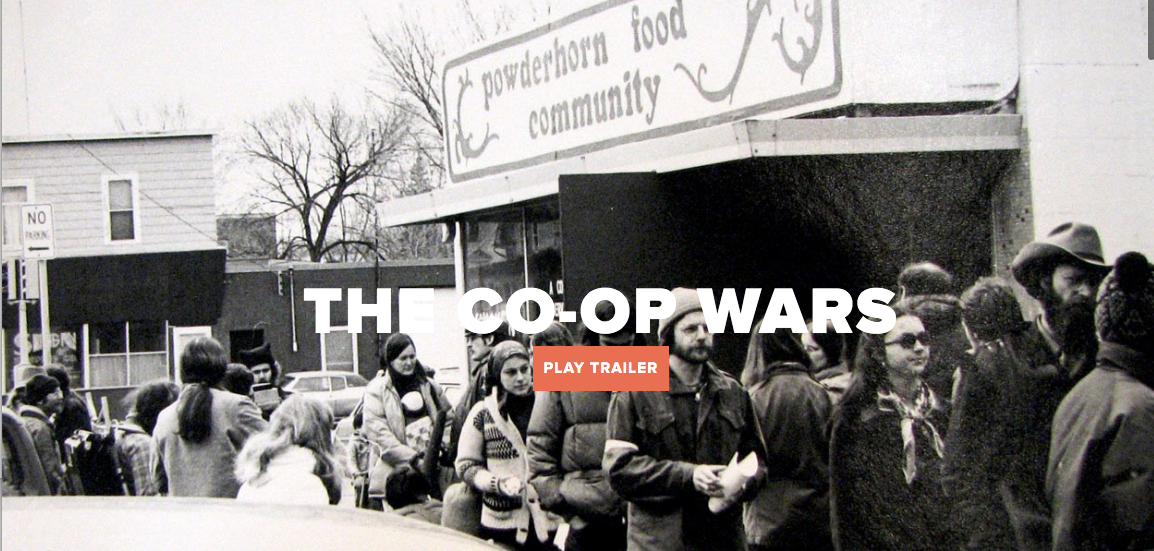
In the 1970s, young people in Minnesota radicalized by the Vietnam War created a unique alternative economy featuring dozens of food cooperatives, but a shadowy revolutionary group used conflicts over class and race to try to seize the movement. The ensuing clash pitted friends and comrades in a sometimes violent conflict over the future of the counterculture.
This documentary is currently streaming on Minnesota’s Public Broadcasting Station TPT in October 2021.
The film was produced by Erik Esse and Hilary Johnson; directed by Deacon Warner; and narrated by Peter Coyote.
More information about the project can be found on the The Co-op Wars website.
Donations and requests for sponsored screenings are encouraged.
Here’s some bonus material:
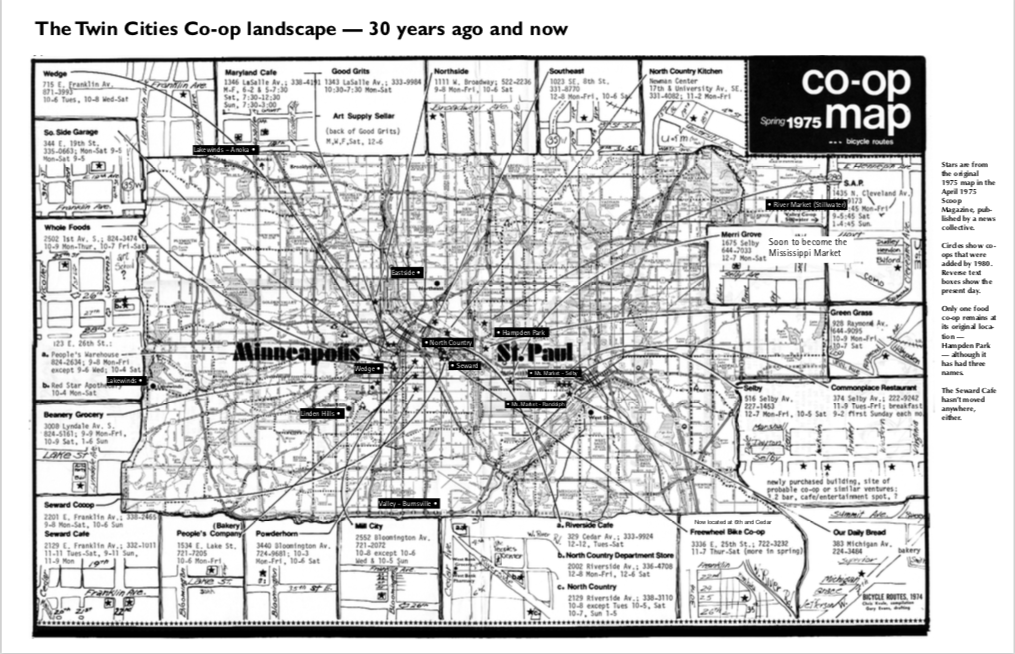
Thanks to Tom Pierson for scanning these Scoop magazines from the Kris Olson collection at the Minnesota Historical Society.
Scoop magazine from April-May 1975 – just before the take over of Peoples’ Warehouse.
Scoop magazine from December 1975 – DANCE has started, CO getting aggressive
Scoop Magazine January 1976 – DANCe Warehouse Incorporates
Scoop magazine – April-May 1976 – Court orders CO out of People’s Warehouse
Co-op Wars article by Erik Farseth 2006
MINNEAPOLIS, MN – When journalist Craig Cox talks about the Co-op Wars, it sounds like he’s describing a work of fiction: a Marxist cult led by a mysterious figure, whose disciples armed themselves with weapons and committed violent assaults. Was this the work of the Weather Underground? No, it’s the story a group of part-time grocery workers.
In the mid-1970’s, Twin Cities food co-ops had become a battleground—quite literally—in a war pitting hippie anarchists against a group of hardcore Marxist-Leninists (the “CO”).
Beginning in 1971, anti-war activists had founded more than two-dozen natural foods co-ops in Minneapolis and St. Paul. These early food co-ops, based on the anarchist principle of mutual aid, were owned and operated entirely by volunteer members –an informal structure, best symbolized by the Mill City Co-op’s decision to allow the customers to ring up their own purchases. It was an alternative system of economics that sought to prefigure a more egalitarian world…..
here’s a PDF of the whole article…
The Story of O: Life in and out of a political cult
Star Tribune/April 6, 2003
By Kay Miller
On a sunny balcony in New Orleans, Alexandra Stein and her mother listened to jazz and feasted on freshly fried beignets. Stein’s mother had flown all the way from London to vacation with her daughter.
But when Stein called home to check in, her roommate was irate: Stein’s trip had not been authorized by their O. contact in Minneapolis. She must return immediately.
“I didn’t know there was a rule,” Stein said. “From out of the blue, I was in trouble.” Rattled, she concocted a story for her mother and flew home.
Through the 1980s, every aspect of Stein’s life — her work, friendships, conversations, housing, what she read and when she slept — was dominated by a revolutionary Marxist-Leninist group known as the O. It arranged her marriage and tried to dictate when she had children. It cut her off from relatives and friends, who had no phone number or address for her — only a post office box.
Today at 48, Stein has vivid memories of a wasted decade marked by panic attacks. The day she left, she began writing down her experiences, compelled to understand how a bright woman like herself could be seduced into joining what she now says was a political cult.
Stein’s riveting new book, “Inside Out,” is the first detailed insider account of O.
The O. started in Minneapolis during the co-op movement of the 1970s. Perhaps 100 to 300 people passed through it during its heyday, yet it was so secretive that its existence was known only to members, the FBI and local leftist opposition groups that encountered it in its violent early days.
Even after ’70s activism faded, the O. continued to thrive in Minneapolis as an underground collective of perhaps 30 true believers. Like Stein, they wanted to change the world…. read more here.
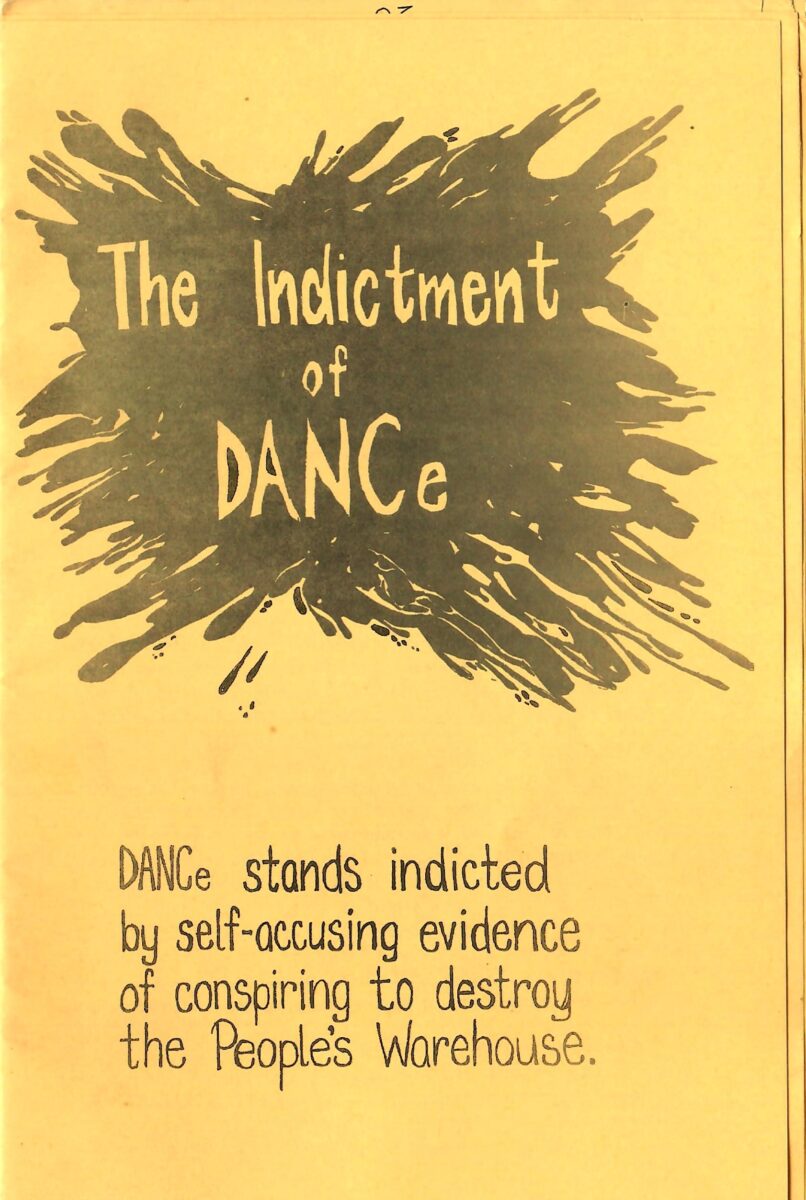
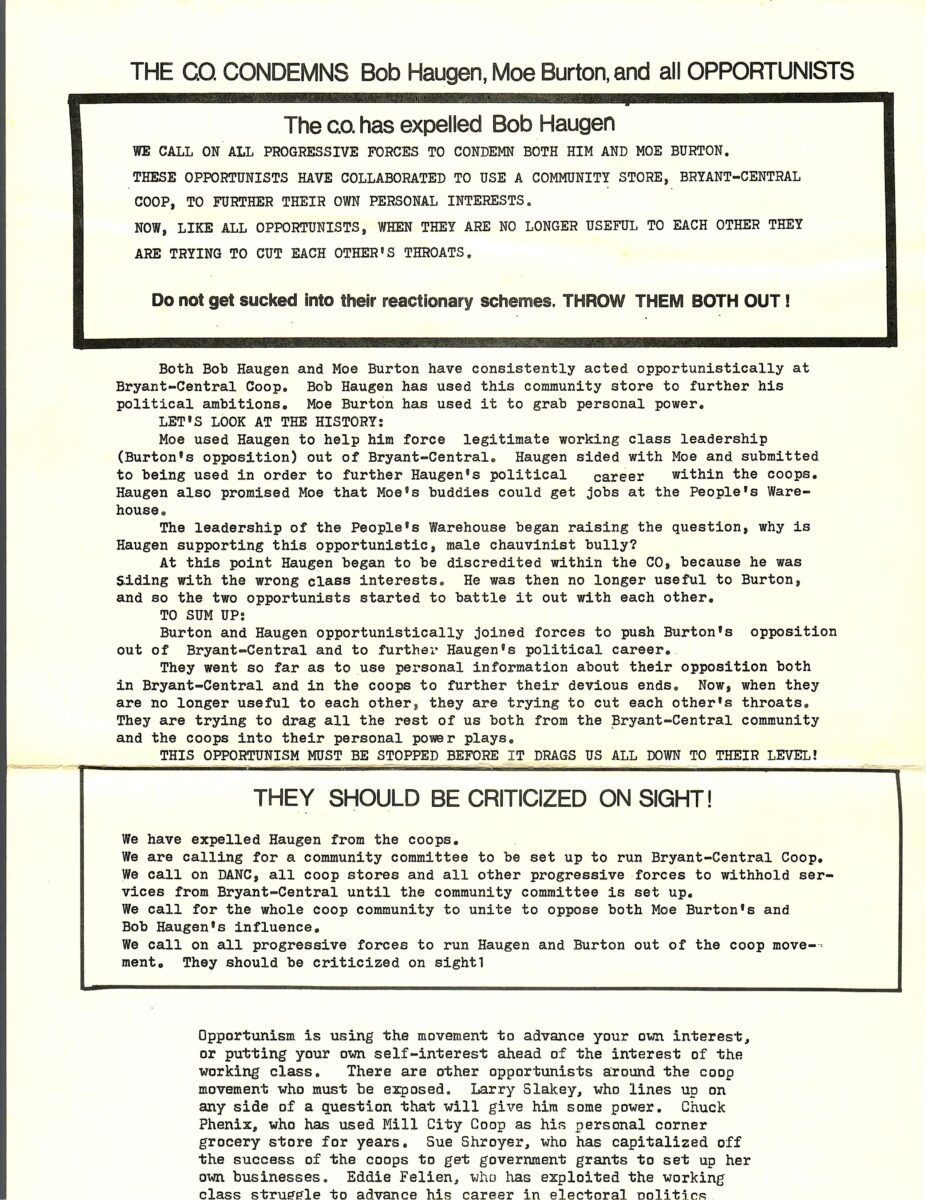
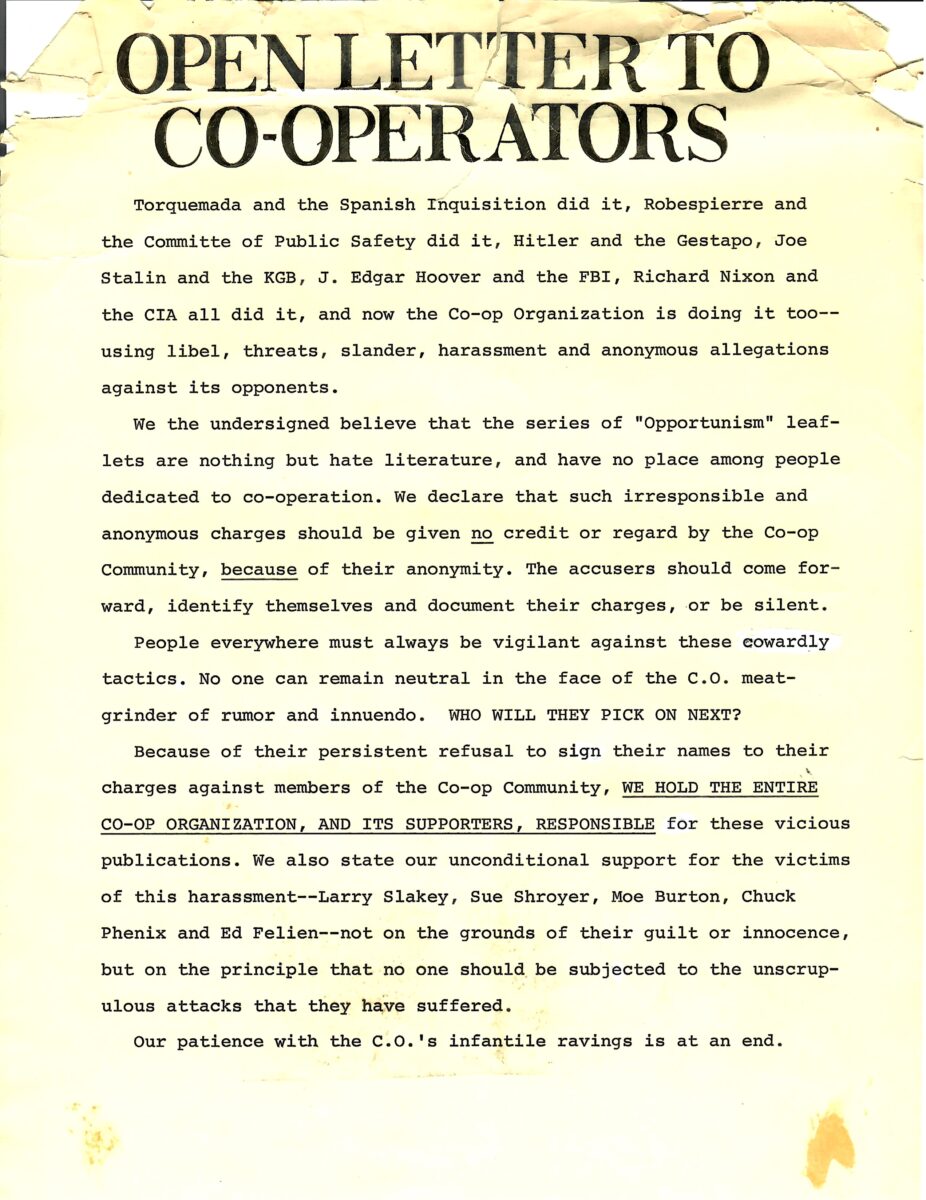
Origins and Legacies – The History of a Cooperative Movement
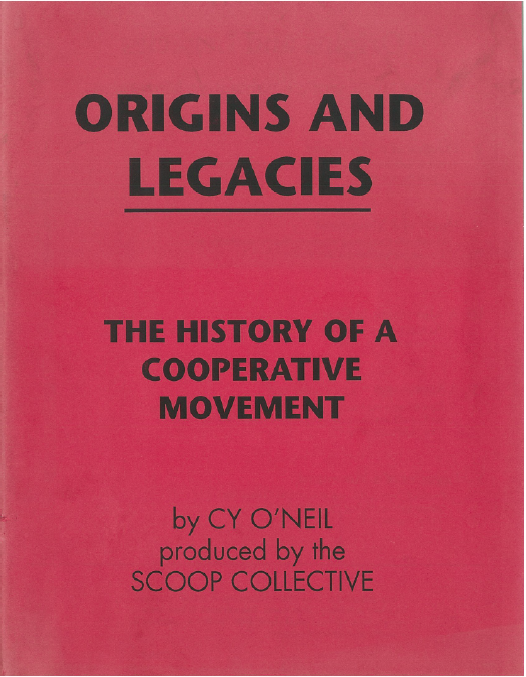
History of North Country Food Co-op
Minnesota Food Cooperatives Inventory at the Minnesota Historical Society
